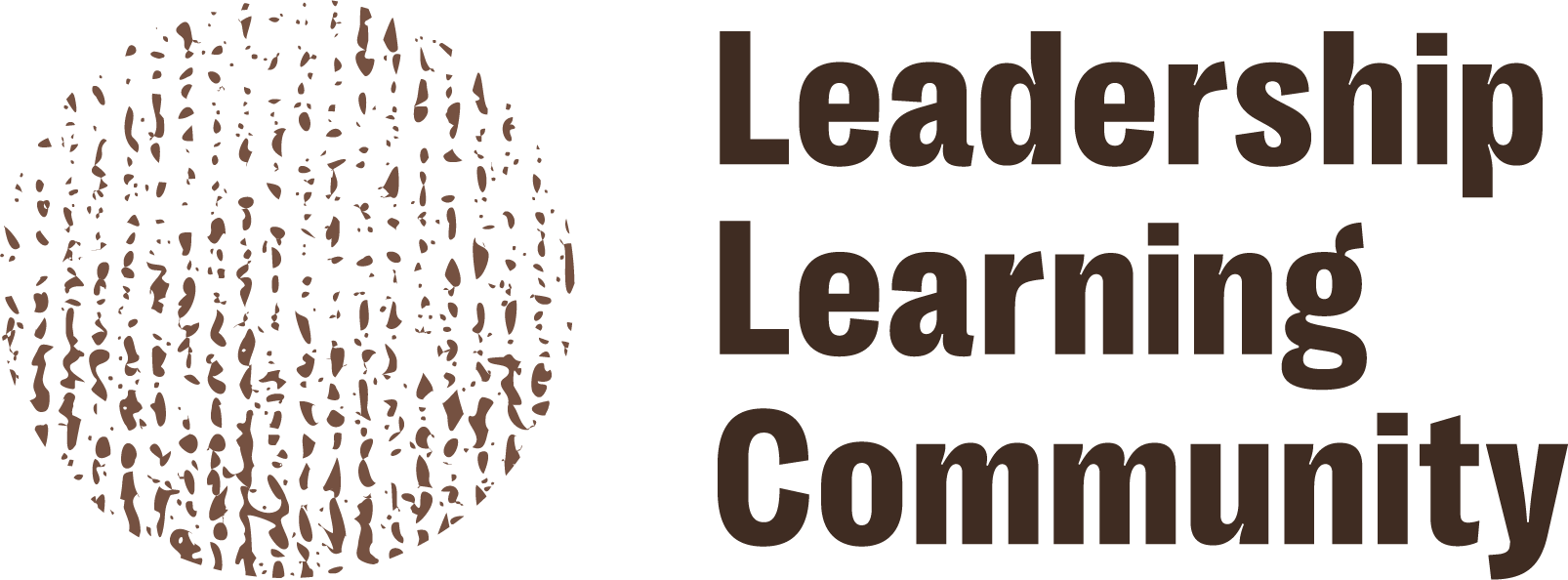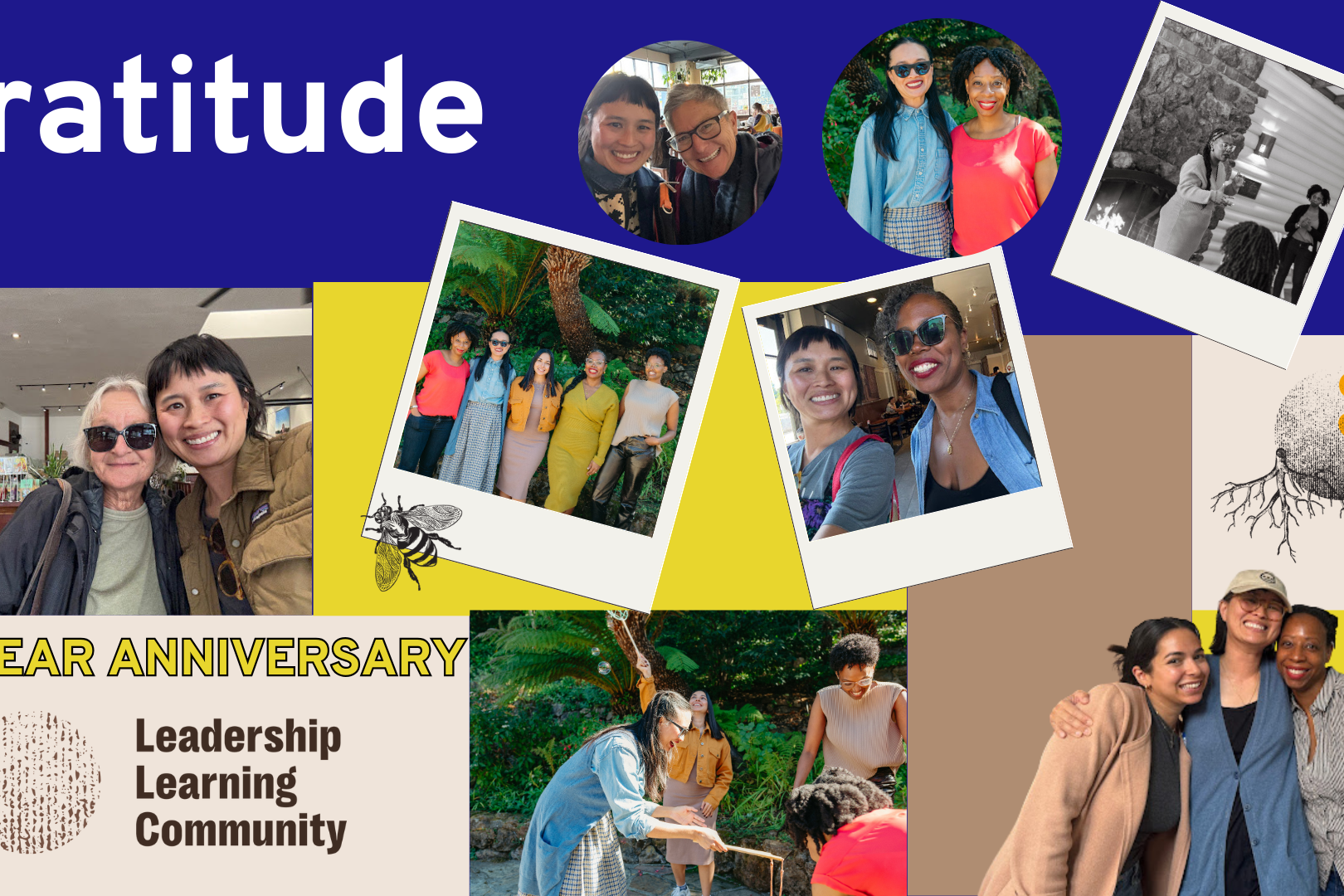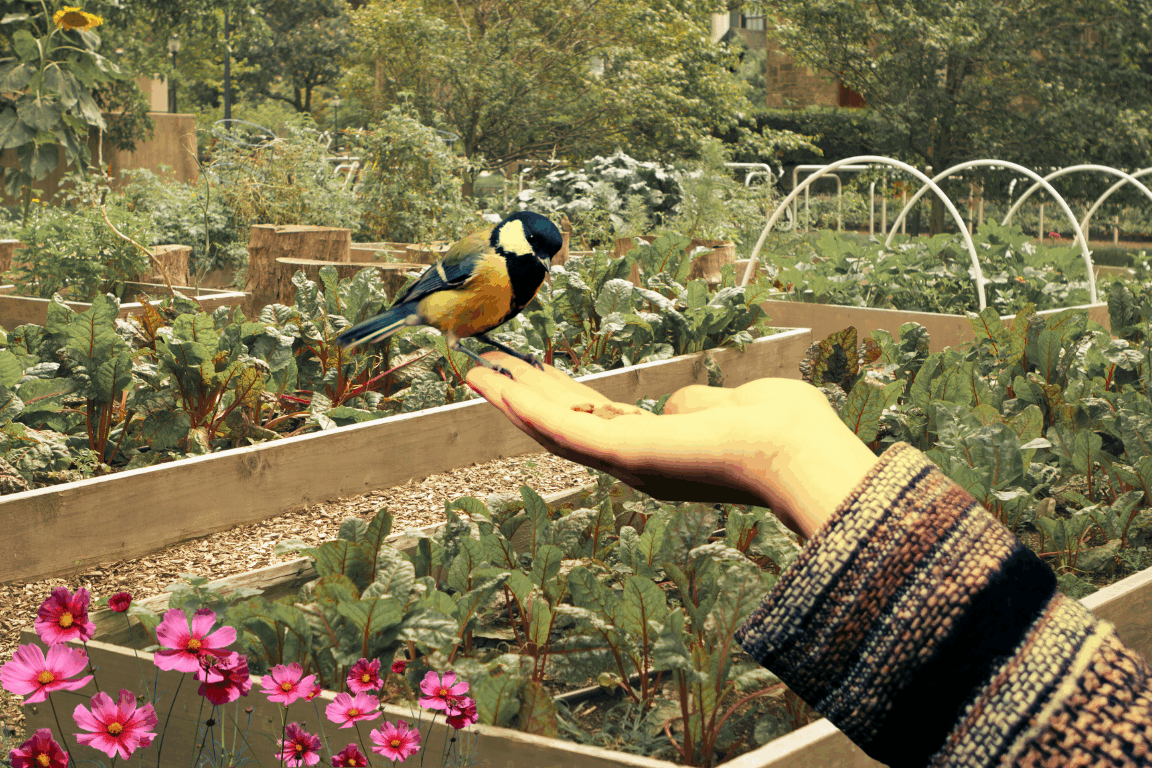“the revolution is you and me listening to each other filling holes with our guts and making wholes with our love.” -Q.R. Hand, Jr., excerpt from “how sweet it is”
Note: I often speak about adopting a praxis of kindness and leading with love as core to practicing liberatory leadership. I’ve not always felt comfortable saying it out loud – primarily because of the ways that our dominant systems traditionally portray love as soft and soppy. Love is typically considered a peripheral notion with no place in our organizational cultures and conflicting perspectives on how much space it should occupy in our broader social movements. Over the past few years, my conversations with many liberatory leaders who have been in this movement for much longer than I have helped me better understand and truly appreciate the many facets and ultimate power of love. This blog is a space to share some of my most recent reflections on being a part of a love-forward organization.
The spark for documenting some portion of my experience with Leadership Learning Community’s (LLC) culture of care came to me last fall when my family was on the third round of illness in as many weeks, and the germs that the kids had passed around had finally attacked me too. I had already taken time off over several weeks to tend to my sick kids, and that morning, I was too exhausted to move. Still, my disquiet about falling short on “responsibility,” a value instilled in me as a child and reinforced as I became an adult navigating our capitalist systems, began to surface. I asked my 10-year-old to bring me my laptop so I could reach out to the team. In my email, I painted a picture of how unwell I was, but I also said, “Just give me a couple of hours of rest, and maybe I can make XYZ meetings work.” I received a prompt reply from my Co-ED, Nikki, essentially stating, “Don’t check back in. I’ll take X meeting. I’ll ask Alex if she can take Y meeting. Please rest, and don’t open your laptop again.”
*Exhale*
I felt relief. I can still connect to the space those words opened inside of me. A space that permitted me to honor my own care needs. I released my feelings of falling short and allowed myself just to be sick and rest until I felt better. In that space, I realized how truly cared for I am in my workplace. It’s interesting what a realization like that inspires. The dominant culture emphasizes a false narrative that such ease with care gives the permission an employee needs to slack off and put less energy into work. Instead, I’ve seen firsthand that it ignites more connection and an authentic desire to reciprocate care and put more into the work whenever possible.
I’ve received communications similar to the one Nikki sent me from all of my colleagues at various times – words that make me feel seen as a human being first – not as a cog that helps an organization run well, but as a person with needs and out-of-work responsibilities. These words and complementary actions from teammates reinforce that I should not have to sacrifice my well-being, or my family’s well-being, to ensure that the things on our organizational to-do list are complete. Our work culture at LLC consistently emphasizes that we are human-centered and not only driven by results. It is sad to say that it is revolutionary; it really shouldn’t be, but in the frame of the current dominant culture, it is.
As might be expected, I wasn’t the only person on the team experiencing the onslaught of fall/winter germs last year, and a pattern of expressions of gratitude for our teammate’s everyday small actions that create and uphold our larger organizational culture started to come up more often during our meetings. Of course, this wasn’t the first time we’d vocalized our appreciation for how we show up for each other, but this time, my heart heard the words with new deference as I became more fully aware of the power of workplace care. Here are some of the things I’ve listened to my teammates say over the past several months about the impact of our culture of care:
“When life comes up, I can rely on a lot of people here.”
“So much gratitude for this team putting relationship and grace first, even in sticky situations.”
“Our team feels like an orchestra – working so well together and making beautiful music.”
“I’m marveling at the fact that I can return from sickness to sanity.”
“It is like we are in a relay race – how we effortlessly carry the baton for each other.”
“I am grateful for the gentle partnership I’ve found with all of my teammates here.”
“We can all trust that we are there to support each other.”
“Truly appreciating how everyone holds everyone up. It’s one of those things that you know for sure when it’s not there and experience it as oxygen when it is.”
For our team, this culture of care extends past times of need to an ease in working together daily. We’ve established a flow in being proactive and solutions-centric while offering grace, compassion, and spaciousness in the times when our teammates need extra support because of personal circumstances, as well as simply picking up the baton to make space for more ease for colleagues who may be overstretched. This requires communication, trust, and a team of people who honor their responsibility to each other, not just the work. We heavily lean into our values of Collaboration and Interdependence, making choices that align with a culture of reciprocity, where we actively cultivate trust and respect amongst our team instead of the oppressive cultural norms of competition and individualism.
When asked to describe LLC’s work, we say we practice “just work in just and joyous ways.” It’s what we demonstrate in our community of practices and affinity groups when we hold spacious meetings to prioritize group connectivity and individual healing. Also, when we share tools and toys in gift boxes with partners when working together on a project. And when we make time to connect on a personal level with everyone we interact with, from board members to funders to members of our network. Because our approach to the work is emergent, and one of our main objectives is to identify and amplify practices that support individuals to thrive while working in the social good sector, we value the process and exploration as much, if not more, than any outcome, and we demonstrate that in many ways.
Most of the people in our network likely don’t know that we do this for each other, too – in big and small ways – every day. We are learning through practice in ways rarely incorporated into a strategic document or individual workplan. Still, because it is part of our culture, it influences and impacts our daily work. These are the more intangible components of culture, like emotional understanding and responsiveness, intentional space and support for care and repair, and deliberate shifts to workloads through mending with a goal of harmony. This is love in action in the workplace.
Now, with all this said, we are also human and don’t always get it right. Though we care, we are not perfect, and we understand the need for intentional repair when there has been a misstep. One of the reasons that it feels safe to care at LLC is because we have built-in support for the hard conversations, too. And even here, we know we have room to grow. As a society, we are so out of practice in moving through conflict to mending because, in our dominant culture, fracture means cancellation, severing ties, or turning away.
So much is lost when we choose that path simply because we do not yet know how to move through conflict to transformation. Because of our societal aversion to slowing down to productively work through conflict, most of us are out of practice and not yet equipped with the tools that enable authentic repair. Moving through conflict with a spirit of repair and mending is not separate from love; the idea of doing so deepens our definition of expressions of love. If we can access our vulnerability, create space, and use the tools at hand, moving through conflict with care can be one of the most edifying expressions of love.
When we speak of LLC as an Oasis, a large portion of what we are referring to is the culture of care practices that offer levers for repair on multiple levels. Internally, we practice care as part of repair for our past experiences with the toxic organizational cultures that brought us all to LLC to seek refuge for ourselves. We also speak about repair to offer a different model at the organizational level to non-profits who have been swept up in the culture of domination by way of the non-profit industrial complex. We offer individuals in our networks who have been harmed by organizations the space and tools for repair so they can process past and current experiences and identify the connections and structures that open pathways to thriving.
Through my experiences at LLC, I’ve been thinking more about an expanding definition of love. One that includes the traditional ideas of romantic love, familial love, and the nuanced love of community but also grows to envelop the actions that support being in the “right relationship” in the workplace, including organizational practices around healthy boundaries, a consistent and permeating praxis of kindness, and space and tools for intentional repair. I’ve also been thinking more about how love, at the core, is an antidote to so much of what we see in our current systems. The rippling effect of love starts with individuals shaping organizations, informing broadly held practice, policy, social movement, and our collective liberation. As bell hooks wrote in Love as the Practice of Freedom, “I am reminded where true liberation leads us, it leads us beyond resistance to transformation….The moment we choose to love, we begin to move against domination, against oppression. The moment we choose love, we begin to move towards freedom, to act in ways that liberate ourselves and others. That action is the testimony to love as the practice of freedom.”
On this day of love, we invite you to explore an expanded definition of love with us. We look forward to gathering virtually with our network to continue exploring the depths of the practice of love through our Mending Series. Our team is feeling called to embark upon this exploration with all of you for several reasons – many of which we will continue to share in the coming months. Foundationally, beyond continuing to grow our understanding of the relationship between conflict, love, and repair, we’ve heard increasing interest from our network for spaces to develop further our collective skills and understanding toward forming a new relationship with conflict, one that can lead to transformation and bring us closer to liberation. This is an invitation to practice love, explore repair, and expand care. To continue to fill holes and make wholes with our love, as Q.R. Hand, Jr. so wisely advised.
Related Posts
December 15, 2025
LLC’s 2025 Celebrations
July 21, 2025




